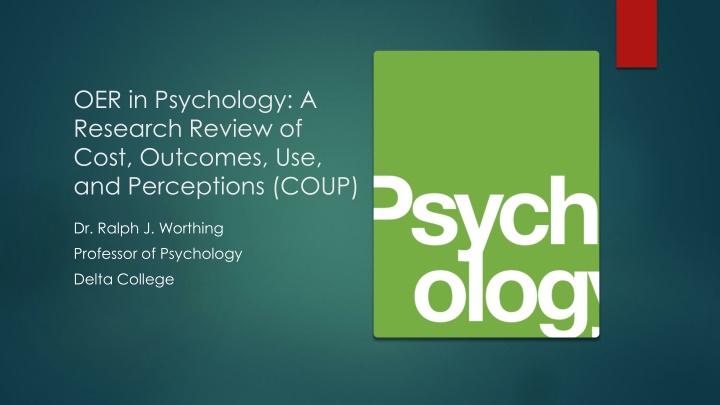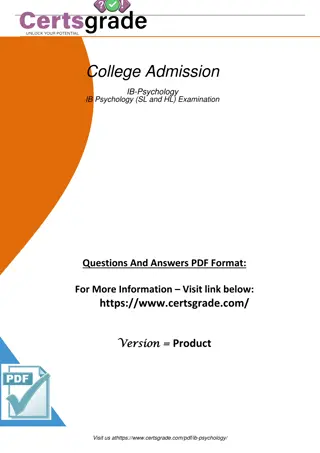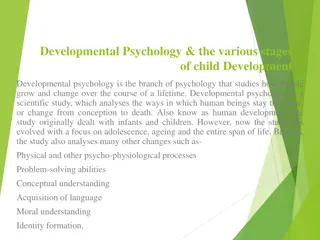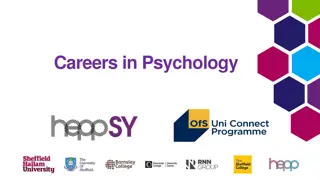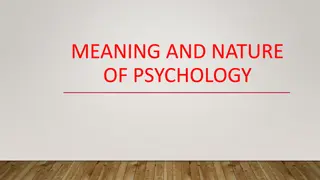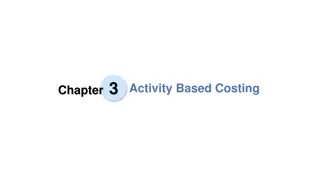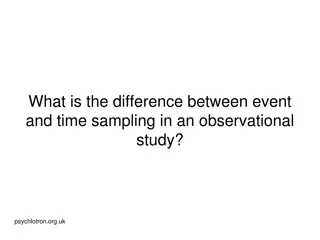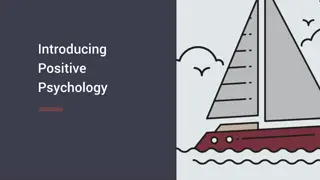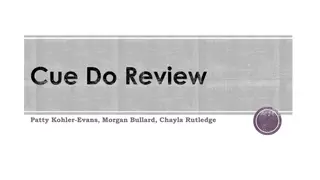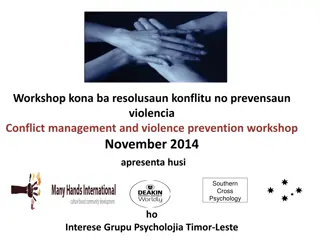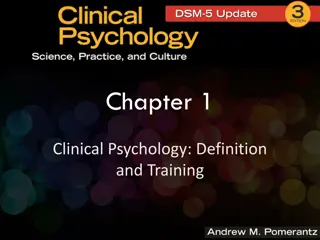Research Review: Cost, Outcomes, Use, and Perceptions in Psychology
This research review by Dr. Ralph J. Worthing explores the implications of Open Educational Resources (OER) in the field of Psychology. The study delves into the costs, outcomes, usage patterns, and perceptions surrounding OER, shedding light on their impact in educational settings. Dr. Worthing, a distinguished Professor of Psychology at Delta College, provides valuable insights into the benefits and challenges associated with incorporating OER in psychological education.
Download Presentation

Please find below an Image/Link to download the presentation.
The content on the website is provided AS IS for your information and personal use only. It may not be sold, licensed, or shared on other websites without obtaining consent from the author.If you encounter any issues during the download, it is possible that the publisher has removed the file from their server.
You are allowed to download the files provided on this website for personal or commercial use, subject to the condition that they are used lawfully. All files are the property of their respective owners.
The content on the website is provided AS IS for your information and personal use only. It may not be sold, licensed, or shared on other websites without obtaining consent from the author.
E N D
Presentation Transcript
OER in Psychology: A Research Review of Cost, Outcomes, Use, and Perceptions (COUP) Dr. Ralph J. Worthing Professor of Psychology Delta College
Sign in under your category, please. (First name) Psychology Faculty Administrative/Professional/Support Staff Other Faculty
Question? How do you find Will Smith if he is lost in the snow? Look for the Fresh Prints
Conclusion: OER is a good option! It s not a slam-dunk, though. It s complicated!
Dr. Ralph Taught my first class at Delta in 1988. Have been making textbooks decisions since then. Historical: First text to mention psychology in 1840s. Student-oriented pedagogy around time of Great Depression Chapter summaries, bolded terms, etc. Increased book sales! Textbook reps would wine & dine to get account. Intro to Psych is a huge account Textbook free copies, student copies, service!
Why textbook selection is so important! Psychology sources suggest that the text is a more important learning tool than the teacher! Provides content and structure. Reportedly, about 2/3 of students don t buy the text for class; many due to cost. Lack of success can lead to dropping out.
Low Adoption of OER by Faculty Lack of awareness (66% not aware; 15% somewhat aware) Expectation of low quality My question has always been: With no financial incentives, how is this model sustainable? Grant funding Some income from print copies Very little competition
COUP Cost Outcomes Use Perceptions
Cost Could be $0 vs. $200 Or, more like $40 vs. $80. First generation college students and non-white students were more likely to report that the OER (free) text affected their decision to enroll. How much did a 1972 copy of The Social Animal cost?
Outcomes No significant differences in content mastery between traditional and OER in introductory psychology classes.
Confounds No control over how much students used each book, or even if they bought one. Teachers who have been using a traditional text for some time may personalize their lectures, such that students don t even need to buy the book. OER texts can be customized by the teacher, which introduces other unknowns. Perhaps increases motivation of teacher? Different assessment measures are used to measure outcomes. No controls over student characteristics going into the study.
Use Overall, students reported using textbooks 1-3 times/week. Online students use their text more than face-to-face. OER textbooks used slightly more than traditional textbooks. My survey on my Intro students in a blended class. Use: Print only = 11 Electronic only = 7 Both = 6
Perceptions Interesting fact: Overall more than 50% of students feel that the textbook was not used enough to justify costs: In general, OERs and traditional textbooks are rated equally on quality. Some evidence that students perceive OERs to better align with quiz/exam questions. Could be because OER adapters personalize to a greater extent.
Introduction to Psychology OERs Flat World (2011) Single author Insufficient funds. Had to go commercial. Noba (2016) 100 modules by 130 authors. Fails to cover content like traditional texts. OpenStax (2014) Multiple authors Not updated. Rated the best of the three. Probably Good Enough .
Final Thoughts OER in Psychology is Good Enough and we should pursue adoption. Need a better sustainability plan. Whether you think you can or think you can t, you re right! That is, if you like your OER, it will work for you! If you like your commercial, it will work for you!
Introduction to Psychology The most difficult Psych course a student will take. Psych Majors constitute under 7% of Introduction to Psychology courses. Intro is a perfect capstone class for Psych Majors. No reason for a Non-Psych-Major to take Intro! (IMHO) If anyone agrees with me, we will need to re-think the OER for Intro.
Reference Clinton, V. (2019). Cost, outcomes, use, and perceptions of open educational resources in psychology: A narrative review of the literature. Psychology of Learning & Teaching, 18(1), 4-20.
